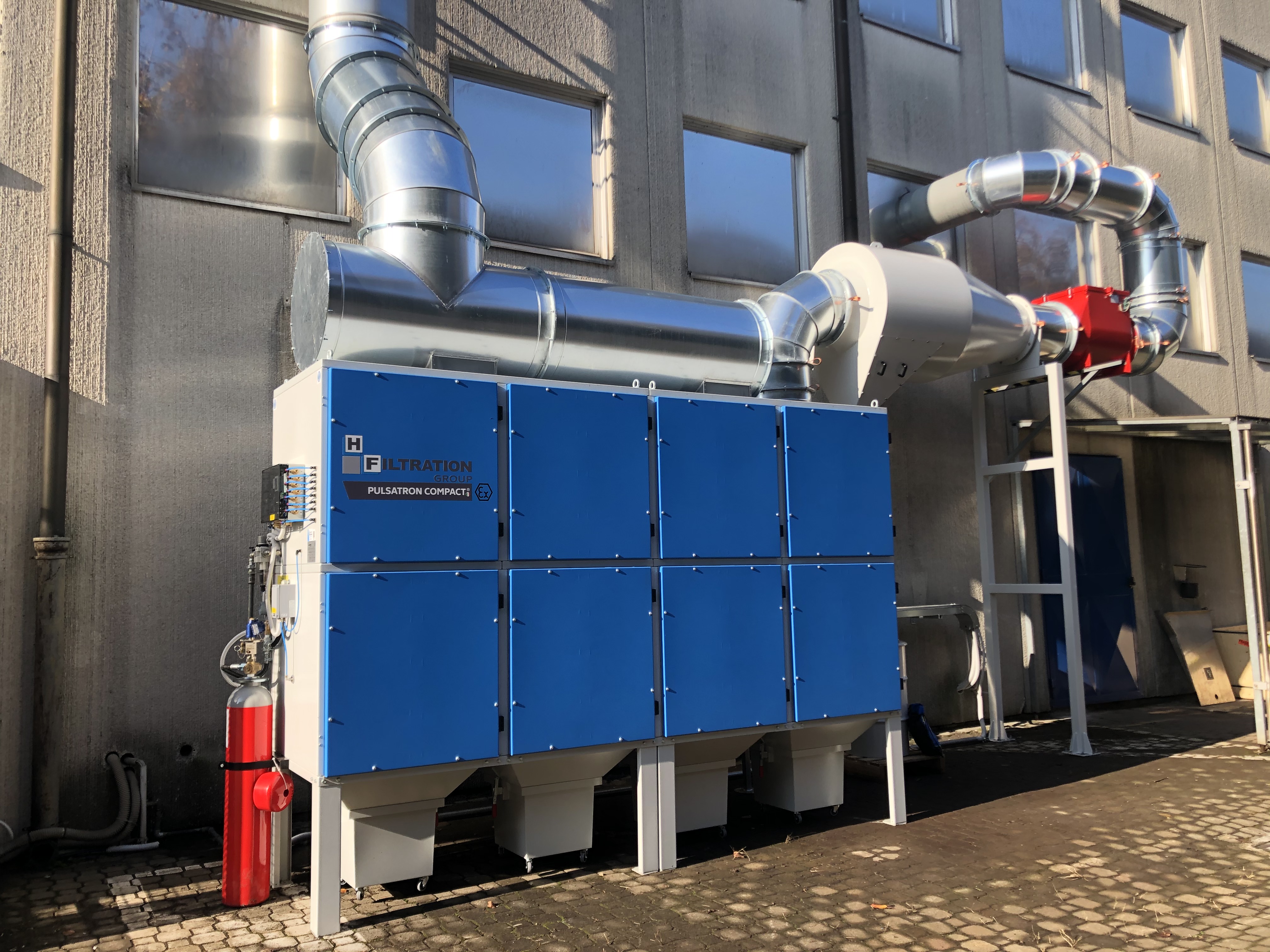In this article, we examine the differences between dry and wet industrial dust collectors, highlighting their operation, applications, and benefits.
Industrial dust collectors are used to remove airborne dust particles, protecting both workers’ health and the environment. There are two main types of systems: dry dust collectors and wet dust collectors.
Dry Dust Collectors
Dry dust collectors prevent the spread of airborne pollutants using well-defined physical principles. This category includes cyclonic filters, bag filters, and cartridge filters.
Bag Filters
Bag filters use fabric elements (polyester, aramid, fiberglass, or Teflon) placed in cages and attached to tubes to capture dust and impurities in the air.
They are suitable for medium-to-heavy-duty applications and deliver excellent performance even with fine and coarse dust. Typical uses include sandblasting, grinding, polishing, milling, dry processing, chemical and pharmaceutical operations, foundries, die-casting, mixing, and drying.
Cartridge Filters
Cartridge filters operate on a principle similar to bag filters, but dust is trapped in pleated cartridges while clean air is released.
They are ideal for lower dust concentrations compared to bag filters, offering superior filtration performance.
Cyclone Filters
Cyclone filters separate dust from the air without moving parts, using centrifugal force.
They are suitable for coarse, high-density dust and provide low installation costs, minimal maintenance, and low pressure drop.
Wet Dust Collectors
Wet dust collectors capture particles by bringing air into contact with water screens or wetted surfaces, moistening the solid particles and facilitating their separation.
These systems are particularly suitable for hazardous or aggressive dusts, as they allow the use of acidic or basic reagents to neutralize harmful components in the air.
Choosing the right dust collector, dry or wet, means protecting workers’ health, optimizing system performance, and reducing environmental impact. Download the full infographic on dry and wet dust collectors, including features, applications, and benefits of each type.



